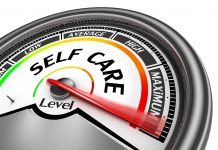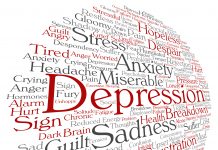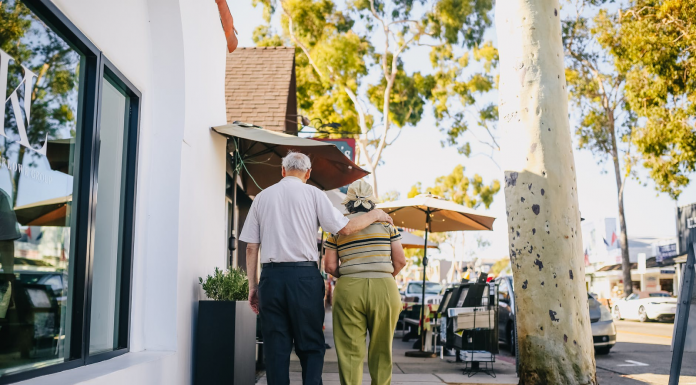Almost a quarter of people age 65 or older suffer from depression. Senior depression. It is one of the major causes of decline in the quality of life for senior citizens and involves more than half of their visits to their doctors. Though according to statistics, less of the elderly are affected by anxiety, quite often the two go together. But all is not doom and gloom!
Researchers say it’s normal for seniors to worry more about things like deteriorating health and financial concerns, but those with anxiety worry excessively about routine events and activities for a longer period of time. This can affect their quality of life and cause them to limit their daily activities and also have difficulty sleeping.
Is it grief or depression?
By the age of 65, many women will be widows. The loss of their loved one leads to chronic depression. How do you distinguish one from the other? The sadness of grief usually comes in waves, with crying and intense sadness, anger or loneliness. A person experiencing grief still enjoys activities. Depression is a more persistent with unremitting deep sadness.
A depressed person is unable to enjoy life. They just make it through each day. Often they have trouble sleeping and eating. If you notice your loved one not eating as usual or interested in activities that they normally would enjoy, it could be depression. Talk to them about their loss and provide support.
Chronic Illness Can Cause Senior Depression
Depression in seniors is more complicated to identify because there may be illnesses involved. Those with stroke, heart disease and Parkinson’s tend to focus on their illness which can lead to a mood disorder. Any chronic illness can cause depression and/or anxiety and both will need to be treated.
How can depression and anxiety be helped?
1. Exercise every day.
Since falls are common in seniors and inflexibility leads to less movement, any type of exercise will help. Yoga and tai chi are excellent for seniors by providing a range of movement and focusing on the poses and moves. This helps with anxiety and depression as your mind is elsewhere.
Seniors who exercise regularly experience fewer declines in their quality of life and are more likely to stay independent. Lots of things can count as exercise, even housework. Take up gardening or walk around the block each day. Besides being good for you, you may just meet some new people!
2. Give yourself a reason to get up each day.
As people age and have more time on their hands, some lose their sense of identity. They may no longer have jobs to go to, their children have left home and what was once a life crammed with activity, is now less busy and filled with a lot of free time. Find a reason to get up each day. It can be a pet, volunteering, hobbies, anything that you enjoy. Give yourself something to look forward to and something that you have to do. It will keep you motivated and focused. It also improves your mood! Remember to include things you can do indoors. Rainy day activities should be fun too.
3. Treat your insomnia.
As we age, we tend to sleep more lightly. Therefore, many seniors wake up numerous times during the night and, consequently, are often up and about early in the morning. Less frequent sleep can compound any problems with anxiety and depression as those with depression tend to sleep less and those who sleep less can become depressed because they are tired.
Cut down on your caffeine, exercise more in the morning and relax more as bedtime approaches. Go to bed at the same time each evening.
4. Try going online.
Depression can be helped by creating new relationships and maintaining those that you now have. Keep in touch with family and friends online. Connect with others and find sources of support, especially if mobility is a problem or if you are housebound. When interaction face-to-face becomes difficult, turn to the internet to stay social.
Remember it’s okay.
This article is intended for informational purposes only. Please consult your health practitioner for more information.
.





























